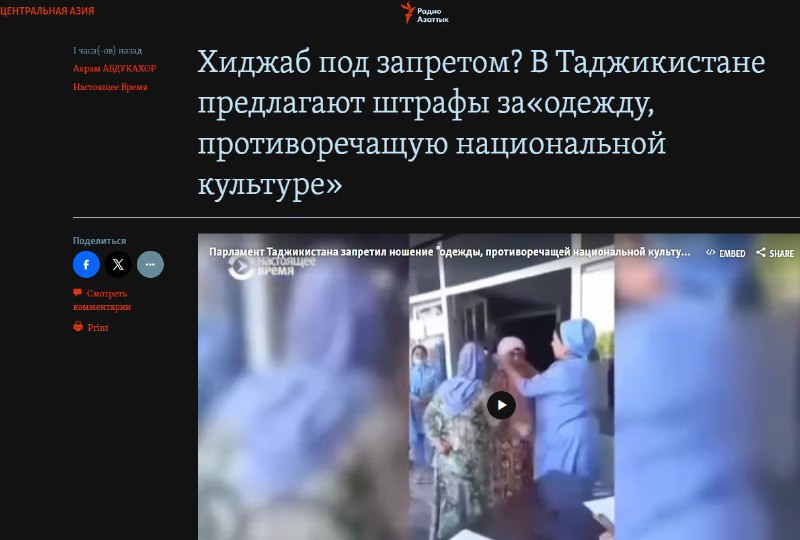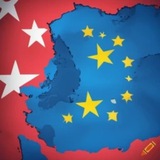group-telegram.com/asian_states_in_world_crisis/13740
Last Update:
В Таджикистане приняли закон против хиджабов
Парламент Таджикистана утвердил поправки к закону «Об упорядочении традиций, торжеств и обрядов в Республике Таджикистан». Отныне запрещается носить одежду, которая считается противоречащей национальной культуре. По мнению экспертов, закон направлен против мусульманской жесткой одежды, такой, как хиджабы, передает радио «Азаттык». При этом в законе нет внятного объяснения, что такое национальная одежда.
За нарушение закона предусмотрен штраф в довольно крупном размере, на сумму, эквивалентную 700 долларам для простых граждан, и несколько тысяч долларов для должностных лиц.
Напомним, что ранее Комиссия США по вопросам международной религиозной свободы (USCIRF) рекомендовала официальному Вашингтону ввести санкции против государственных структур и отдельных граждан Таджикистана за нарушение принципов свободы религии.
❗ Правительству США предложили ввести санкции против Таджикистана
#таджикистан
BY Азиатские державы и Мировой кризис

Share with your friend now:
group-telegram.com/asian_states_in_world_crisis/13740
